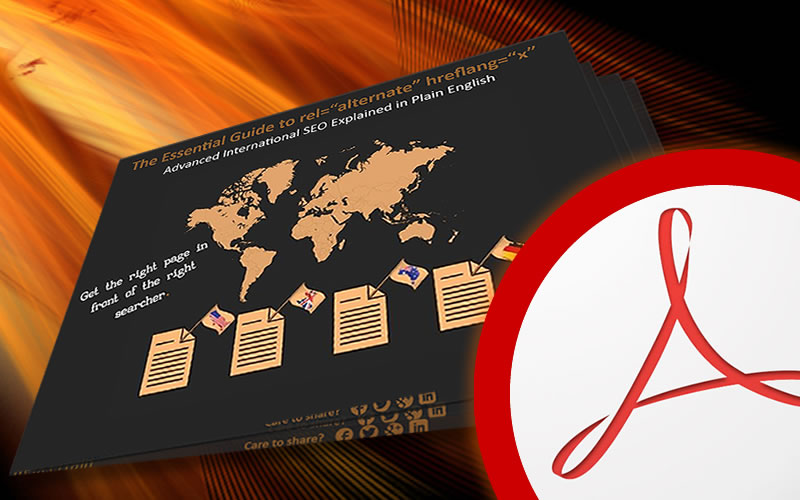Geo-targeting is always a popular subject at International Search Summit events – its importance for multilingual websites cannot be disputed yet achieving effective geo-targeting across multiple locales and languages proves a challenge for many.
Google’s hreflang markup has been developed to improve the targeting of multilingual websites and give website owners the ability to tell Google exactly who should be seeing which content.
Pierre Far, Webmaster Trends Analyst, will be speaking on the topic at the International Search Summit London on 14th May, where he will be explaining how and when to use the markup, and answering delegates questions.
Ahead of the Summit, for which the Early Bird rates expire on Friday, 30th March, Pierre answered a few questions to give some insight into Google’s thinking behind it and how it will improve things for international marketers.
Pierre, how has the introduction of the rel=”alternate” hreflang markup changed the handling of international content on websites?
The aim of rel-alternate-hreflang is to help us show the most relevant page on your site to our searchers based on language and, optionally, country. Forming page-level relationships like this goes well beyond simply geotargeting whole sites to specific countries, and allows for smarter handling.
The first iteration of rel-alternate-hreflang annotations, launched in 2010, communicated to our algorithms that two (or more) pages are identical (same language without geographic specificity) even if the template surrounding the content is in a different language.
We recently improved our support for the annotations to include content in different languages and, optionally, specific countries the pages are targeting. This improvement allows us to do a better job at showing the most appropriate page from multinational sites in our search results.
Why should global organisations implement it on their websites?
Global organizations have customers worldwide and may have separate content targeting each country specifically. With rel-alternate-hreflang annotations, our algorithms will understand the language and geographic relevance of the content better and so we can try to connect our searchers with the most appropriate language and country page the global organization offer.
To take a simple example, suppose a site has two pages in German, one targeting users in Germany and the other for users in Switzerland. With the new rel-alternate-hreflang annotations, the webmaster can hint to our algorithms which page targets users in Germany and is best shown to searchers on google.de, and which equivalent page targets users in Switzerland and is best shown to searchers on google.ch.
Are there any scenarios where it isn’t applicable, or effective?
The use case for rel-alternate-hreflang annotations is quite specific: they describe relationships between pages based on language, and optionally at a country level, only.
What do you see as the major challenges for organisations targeting a multilingual audience? And what area of search do you see as most important for international marketers in 2012?
I think the biggest challenge is also the biggest opportunity and it’s what it has been always: Making sure that customers worldwide are getting useful content relevant to their locality. Good marketers already know this and work hard to deliver, and with rel-alternate-hreflang, they can help us surface the most relevant content they have for their users when they search on Google.
One tip to help webmasters of multilingual and multinational sites: Test your important keywords in the relevant Google search property. For example, if you are targeting French speakers in Switzerland, go to google.ch and set the language to French and try your queries. Do the search results return the content you were expecting? If not, ask yourself if you have content specifically targeting such searchers. If not, perhaps create such content, and either way, consider setting up rel-alternate-hreflang annotations.
Tickets for the International Search Summit London, which is running as part of SMX London, are on sale, with early bird rates expiring on Friday 30th March. For more details and the full agenda, visit www.internationalsearchsummit.com/london
Gemma Houghton
Latest posts by Gemma Houghton (see all)
- Watch the recording: How to identify and seize growth opportunities in international markets - April 20, 2022
- International marketing recruitment: How to drive global growth amid The Great Resignation - February 23, 2022
- 5 trends to include in your 2022 international digital marketing strategy - December 21, 2021






